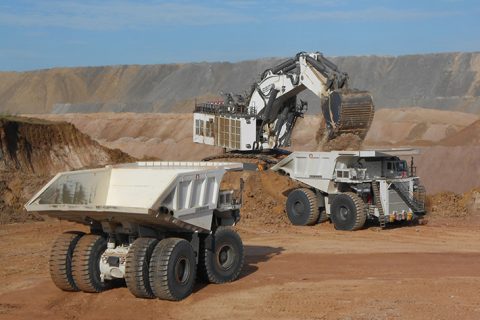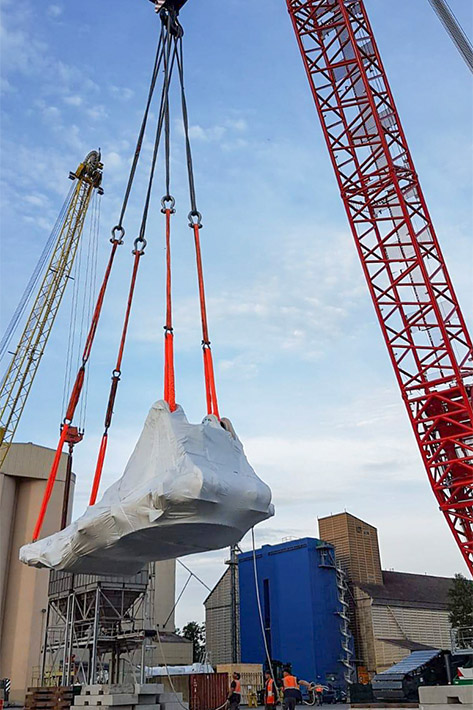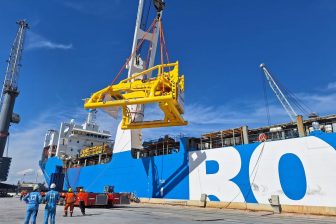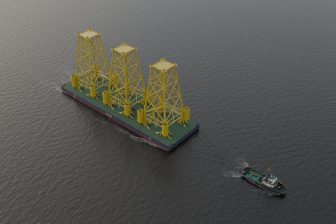
Liebherr statisfied with modal shift for mining equipment
PRESS RELEASE – Liebherr is very satisfied with the results of a modal shift trial in which mining equipment is transported to major seaports by barge instead of trucks. After three months of testing, the company saved 100,000 kilometres on the road and 160 tonnes of CO2.
Before June 3 this year, every truck that left the Liebherr-Mining Equipment site in the French town of Colmar travelled an average of 500 kilometres by using the French, German and Belgian roads to route the machines to the major seaports.
But since June 3rd, Liebherr has started a modal shift trial to lower its CO2 emissions. Now, the trucks deliver the cargoes to the nearby Rhine port of Colmar/Neuf-Brisach, where the units are loaded onto barges for river transportation.
After the first trimester of a12 months test period, Liebherr says it is very satisfied with this new mode of transport.
“One of the first positive aspects of river transport is the reduction of the environmental footprint. Since the beginning of this test, 34 machines were transported by river on 11 barges. This represents around 6,000 tonnes or 290 packages. For the environment this means that we saved up to 100,000 km on the road and 160 tonnes of CO2”, the company states.

You just read one of our premium articles free of charge
Register now to keep reading premium articles.




